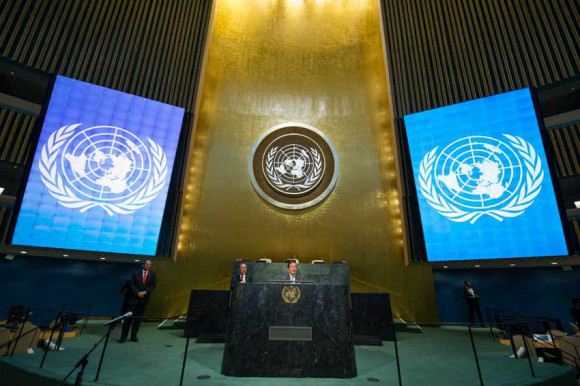UN Secretariat under New Leadership
The United Nations, an intergovernmental organization that promotes international cooperation, has six major organs. One of them is the United Nations Secretariat which is the organization’s executive arm headed by the secretary-general. The outgoing secretary-general of the U.N. is South Korea’s Ban Ki-moon whose term started in 2007 and will end in December 2016.
Contrary to the traditional selection process which is often criticized, the selection of the new secretary-general was publicized for the first time to make it more transparent. Debates between candidates were televised globally. The secretary-general is appointed by the General Assembly upon the endorsement of the Security Council, also known as the P5, Big Five, or Permanent Five, comprised by China, France, Russia, the United Kingdom, and the United States.
Since there has never been a female secretary general, many people think that it is high time for the next officeholder to be a woman. Several worthy female contenders have been considered for the job. In fact, 50 percent of the candidates were women. However, the appointed successor is another man—the former Portugal Prime Minister, António Guterres. His term will start on January 1, 2017. As the secretary-general, António Guterres will be the de facto spokesperson and leader of the United Nations.
António Guterres served the United Nations High Commissioner (UNHCR) for Refugees for 10 years. His experiences in this branch of the U.N. will come in handy because his term will be facing global issues such as numerous wars, refugee crises, and terrorism. In addition, he will take over the U.N. which is currently facing financial scandals and reports of sexual abuses by some U.N. peacekeeping troops overseas.
Many experts believe that António Guterres is the best man for the job considering his broad political knowledge and experience. He is known for pushing superpowers to do more for the world’s refugees and for being forthright about human rights. He is expected to be able to give the U.N. the push that it needs.
According to António Guterres, in order for the U.N. to be a more effective organization, its priority should be peace where crisis prevention rather than management is crucial. He recognizes that the root causes of conflicts are complex, multiple, and interconnected. According to him, to address the interlinked roots of conflicts, an approach that embraces the three pillars of the U.N.,namely peace and security, sustainable development, and human rights, is needed.

'Study > English' 카테고리의 다른 글
| Samsung BioLogics interest tepid (0) | 2016.11.10 |
|---|---|
| Wage numbers grim for part-time workers (0) | 2016.11.09 |
| Bears takes the Series 4-0, pennant and KBO in hand (0) | 2016.11.07 |
| What Defines a Successful Movie? (0) | 2016.11.04 |
| U.S.-Korean exercise targets North (0) | 2016.11.03 |
